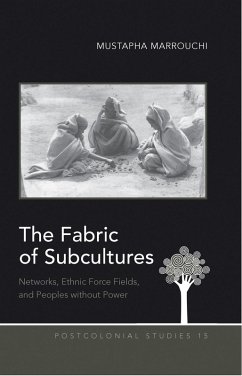The Fabric of Subcultures reflects on the state of the postcolonial signature behind stylistic refinements - a world of letters relatively dependent on the West for economic and political realms, and in which language systems, aesthetic orders, and genres struggle for dominance. Rejecting facile talk of postmodernism, with its suggestion of a happy «melting pot» of literature, this book exposes an emerging regime of inequality in the world of letters, where minor languages and literatures are subject to the invisible but implacable violence (of the letter) of their dominant counterparts. Inspired by the writings of Pierre Bourdieu, the book develops the first clear model for understanding the real value of the republic of postcolonial letters (if it ever existed). It proposes a baseline from which we might measure the validity of the emergent, as opposed to residual, signature, while arguing for the importance of literary capital and its role in giving legitimacy to developing peoples in their incessant struggle for international recognition. Within its overarching theory, the book locates three main categories in the genesis of postcolonial literature - English, French, and Creolismo - and closely examines towering figures in the realm of postcolonial letters - Jacques Derrida, Homi Bhabha, Patrick Chamoiseau, Mahmoud Darwish, Jamaica Kincaid, and Caryl Phillips, among others. It also explores the significance of cultural practices related to food (couscous) and sports (soccer) represented here by the iconic figure of Zinédine Zidane, a Beur born and raised in la banlieue (the suburbs). In other words, the book examines from the bottom up the political struggle of the postcolonial subject in the era of postmodernity - one framed by sites of resistance and efforts at constructing a theoretical model for the «inventory of the present» at a time when words like «empire» have possibly taken on a new significance.
Dieser Download kann aus rechtlichen Gründen nur mit Rechnungsadresse in A, B, BG, CY, CZ, D, DK, EW, E, FIN, F, GR, HR, H, IRL, I, LT, L, LR, M, NL, PL, P, R, S, SLO, SK ausgeliefert werden.
«If you cannot imagine the study of literature as a practice of everyday life, read 'The Fabric of Subcultures'. If you can, read it. A surprising lesson, it makes one smile and this might turn up hurting. And when it hurts, the pain might lead to a surprised joy. This is comparative literature at its unexpected best. 'The Fabric of Subcultures' means to be about people without power, and demonstrates what it stands for, who is not in power?» (V-Y Mudimbe, PhD)









